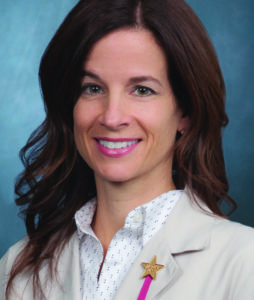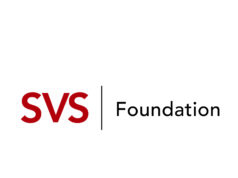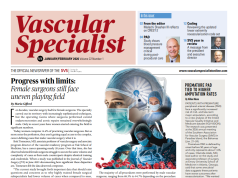
The Society for Vascular Surgery (SVS) has expressed conditional support for cardiology establishing an independent certification board but objects to provisions in the current American Board of Cardiovascular Medicine (ABCVM) proposal as they conflict significantly with the mission and requirements of the Vascular Surgery Board (VSB), which already issues a primary certificate issued by the American Board of Medical Specialties (ABMS).
The proposal requires critical revisions to address the underrepresentation of vascular expertise and training needed to fully care for patients with vascular disease and ensure high standards of care, the Society said.
In a detailed comment letter submitted July 10, the SVS took the lead with other vascular societies to outline concerns and suggested improvements to the ABCVM proposal, which is currently under review by the ABMS Advisory Council. “Not surprisingly, the SVS’ perspective on the strengths and areas for improvement of the ABCVM proposal was echoed by numerous other national and regional vascular surgery societies, who joined us in providing feedback to the ABMS on this proposal. Ultimately, we are all deeply invested in assuring that the care provided to our patients with vascular disease meets the highest of quality standards in order to serve the public to the best of our ability,” said Bernadette Aulivola, MD, a member of the SVS Executive Board and the VSB of the American Board of Surgery (ABS).
The ABMS opened a 90- day comment period April 24 to gather feedback on the proposed ABCVM. If approved, this new board would become a voting member of the ABMS. There is concern in the vascular community that both the public and other providers may become confused or misunderstand the expertise and extensive training of vascular surgeons who have a primary ABMS certificate in vascular. The SVS and co-signatories support the initiative for an independent cardiology board, the Society pointed out, but stressed that the current proposal falls short in several key areas.
Underrepresentation of vascular diseases
The SVS letter highlights the critical expertise and years of experience required to provide high-quality care for patients with vascular diseases such as peripheral arterial disease (PAD), cerebrovascular disease and renovascular disease. With more than 200 million people worldwide suffering from PAD alone, the SVS argues that the proposal does not adequately address the significant health burden posed by these conditions, or the amount of training or case volume to care for patients.
Lack of specific credentialing pathways
The proposed board lacks clear pathways for credentialing in vascular disease, the SVS continued, emphasizing the necessity of detailed training paradigms and requisite case numbers for vascular procedures to ensure consistent expertise among practitioners.
According to Aulivola, “The ABMS requires that its boards ‘create independent, external assessments and conduct comprehensive evaluations of the knowledge, clinical competence, performance and experience, of such candidates through initial and continuing certification.’ The current proposal lacks clarity in both areas, with the suggestion that continuing certification assessments would be delegated to specialty societies rather than being directly overseen by the board itself. This is a significant concern when it comes to assuring that the care of patients with vascular disease meets established standards.”
Quality improvement and practice standards
The proposal does not adequately outline plans for quality improvement programs, the SVS said, underscoring the importance of quality registries, such as the Vascular Quality Initiative (VQI), in improving patient outcomes and maintaining high standards of care. The VQI provides the continuous feedback necessary for vascular providers to verify national benchmark levels, said SVS Secretary William Shutze, MD, an advocate of the proposal.
Potential public confusion
The SVS stressed that the interchangeable use of “cardiovascular medicine” and “cardiology” in the proposal could lead to public confusion over qualifications and areas of expertise, possibly misleading patients regarding the extent of cardiologists’ training in vascular diseases. According to Shutze, cardiology has multiple subspecialties, including but not limited to electrophysiology, heart failure and structural heart, all of which are laser-focused on their domain.
“The nomenclature of the new board elevated them as vascular-proficient providers. That is not the case,” Shutze said. “If the proposal is approved with the current name-granting, this board authority and domain over the vascular space, it will not advance vascular care but diminish it.”
Public safety risks
The proposed certification raises concerns about the impression that all cardiologists can fully manage vascular diseases, but the SVS pointed out that most cardiologists lack comprehensive training in medical, surgical and endovascular treatment for these conditions. “With the comment period closed, we now await the ABMS decision. If approved, we will congratulate them and work with the new board to address the noted deficiencies in vascular education and training. If rejected, we will learn from the process as we consider our Board’s options. Should revisions be requested, we will collaborate with the proposed new board, too,” said Shutze.
According to Aulivola, the SVS has offered to work with ABCVM proponents to enhance their proposal, particularly in areas concerning the care of vascular disease, where significant overlap with care provided by VSB-certified vascular surgeons exists. The aim is to fulfill the ABMS’ mission of improving healthcare quality.
“The SVS is excited to partner with our colleagues in cardiology to develop improved training paradigms and quality improvement initiatives that will allow those interested in contributing to the care of vascular patients to do so with rigor and expertise,” added SVS President Matthew Eagleton, MD.
For more information and to view the full comment letter, visit vascular.org/ CVMComments.












